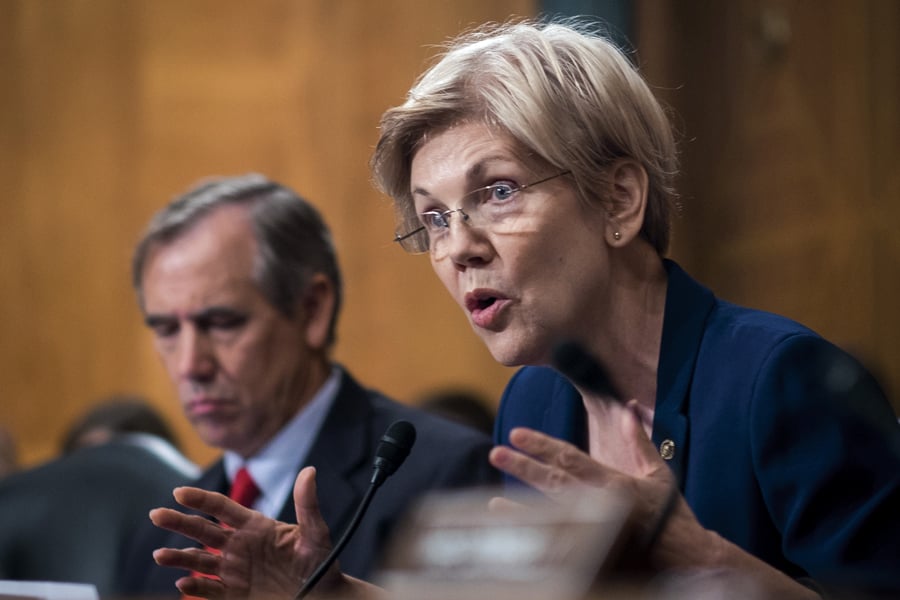

Sen. Elizabeth Warren is asking Robinhood Markets Inc. to explain its decision to restrict trading in shares of GameStop Inc. and other companies amid a frenzy that pushed shares of the video-game retailer to extraordinary levels.
In a letter dated Tuesday, the Massachusetts Democrat asked Robinhood Chief Executive Vladimir Tenev to disclose whether the restrictions might have been influenced by talks with hedge fund investors or financial services partners, including Citadel Securities.
She also sought assurances that Robinhood is meeting regulatory requirements and contractual obligations to retail customers.
”In addition to putting customers’ finances at risk, Robinhood’s actions revealed a new set of questions about its relationship with large hedge funds and other financial institutions, and follows past criticisms of Robinhood’s insufficient investor protections,” Warren wrote. She asked that the company respond by next Tuesday.
Warren and some other lawmakers have joined retail investors behind the surge in GameStop shares in questioning whether Robinhood imposed the trading curbs in coordination with Citadel Securities, the market maker that is one of the trading platform’s biggest sources of revenue.
Both Robinhood and Citadel have flatly denied any coordination or wrongdoing.

While industry statistics pointing to a succession crisis can cause alarm, advisor-owners should be free to consider a middle path between staying solo and catching the surging wave of M&A.

New joint research by T. Rowe Price, MIT, and Stanford University finds more diverse asset allocations among older participants.

With its asset pipeline bursting past $13 billion, Farther is looking to build more momentum with three new managing directors.

A Department of Labor proposal to scrap a regulatory provision under ERISA could create uncertainty for fiduciaries, the trade association argues.

"We continue to feel confident about our ability to capture 90%," LPL CEO Rich Steinmeier told analysts during the firm's 2nd quarter earnings call.
Orion's Tom Wilson on delivering coordinated, high-touch service in a world where returns alone no longer set you apart.
Barely a decade old, registered index-linked annuities have quickly surged in popularity, thanks to their unique blend of protection and growth potential—an appealing option for investors looking to chart a steadier course through today's choppy market waters, says Myles Lambert, Brighthouse Financial.
